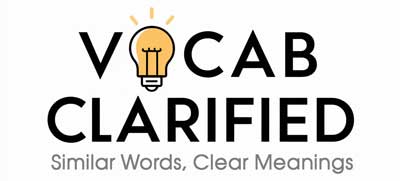Have you ever been puzzled by whether to use “oversight” or “oversite” in your writing? These two terms, though sounding similar, have distinct meanings and uses that can lead to confusion.
This article will clarify the differences between “oversight” and “oversite,” helping you use each term correctly in various contexts. Let’s dive into how these words differ and why choosing the right one matters.
Understanding Oversight And Oversite
Oversight: Definition and Usage
“Oversight” is a widely used term that refers to the act of overseeing or supervising something. It can also mean an unintentional failure to notice or do something.
Here’s how it is used:
- Example 1: The manager’s oversight ensured that the project stayed on track and met all deadlines.
- Example 2: The error was simply an oversight and was quickly corrected once noticed.
Oversite: Definition and Usage
On the other hand, “oversite” is often a misspelling or incorrect form of “oversight.” It is not a standard word in English and is rarely used in formal contexts.
For instance:
- Example 1: You might see “oversite” used incorrectly in place of “oversight,” but this is considered a typo.
- Example 2: When proofreading, ensure you correct any instances of “oversite” to “oversight” to maintain professionalism.
Side-by-Side Comparison
| Aspect | Oversight | Oversite |
| Definition | Supervision or an unintentional omission. | Not a standard word; often a misspelling. |
| Common Usage | “The board provided oversight of the project.” | “The report contained an oversite” (should be “oversight”). |
| Key Differences | Correct term; used in both contexts. | Incorrect spelling; not recognized formally. |
When deciding between “oversight” and “oversite,” it is crucial to use “oversight” to ensure accuracy and clarity.
“Oversite” should be avoided as it is not a standard word and can confuse readers or reflect poorly on your writing.
Everyday Usage Examples
To illustrate how “oversight” is used in everyday language, here are some examples:
- Oversight: The quality assurance team provides oversight to ensure the products meet industry standards.
- Oversight: Due to an oversight, the email was sent without the necessary attachments.
- Oversight: Effective oversight by the committee is essential for maintaining transparency and accountability.
- Oversight: The teacher’s oversight helped improve the students’ performance by addressing their learning needs.
- Oversight: The project’s success was due in part to the oversight provided by experienced project managers.
- Oversight: The audit revealed several oversights in the financial reports that needed immediate correction.
Conclusion
In summary, “oversight” is the correct term for referring to supervision or an unintentional omission, while “oversite” is a misspelling and should be avoided.
Using “oversight” appropriately ensures that your writing is clear and professional. Always double-check your work to avoid common mistakes and maintain accuracy.

